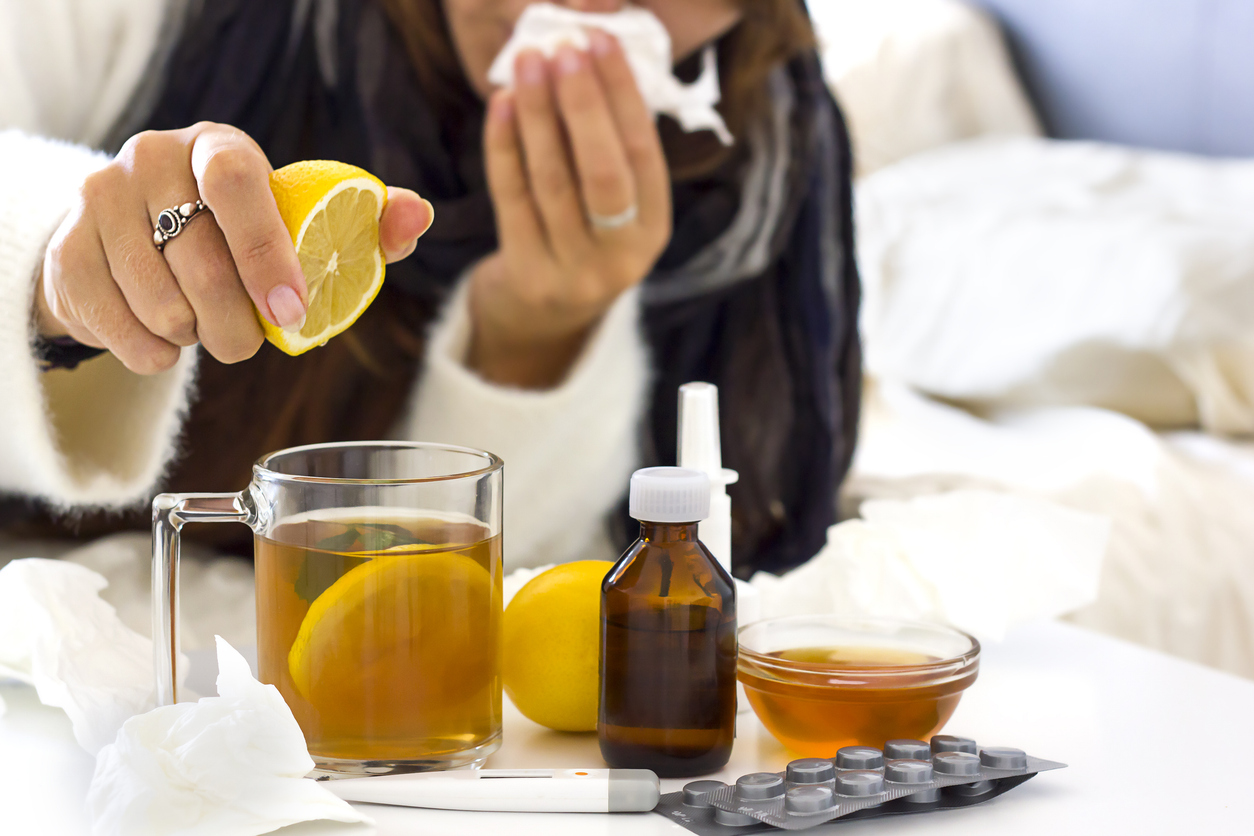How to Cure Flu Fast: 5 Tips for Quick Flu Recovery

Are you struggling with fever, body aches, and fatigue? Flu symptoms disrupt your daily routine and leave you searching for relief. Most people battle the flu for a week or longer, but smart recovery strategies can shorten your downtime. Getting rid of the flu fast requires more than medication, as your recovery time speeds up when you combine home remedies with proper rest techniques.
Understanding Fast Flu Recovery Basics
Your body’s fight against the flu plays a vital role in recovery optimization. The influenza virus targets your respiratory system and affects your throat, nose, and lungs.
What Does the Flu Do to Your Body?
Once the flu virus enters your respiratory tract, it attaches to your cells and uses them to replicate. This triggers your immune system to release proteins called cytokines, which coordinate the immune response. While effective in fighting the virus, cytokines also cause common flu symptoms like fever and inflammation. The virus can temporarily weaken your body’s defenses, including the membranes in your airways, leaving you more susceptible to secondary infections.
Typical Flu Recovery Time
The flu recovery follows a predictable pattern. Symptoms appear within one to two days after exposure and last five to seven days. Here’s what you can expect:
- Days 1-3: Sudden fever, muscle pain, and original symptoms
- Days 4-5: Peak symptoms with decreasing fever and muscle aches
- Days 6-8: Symptoms improve by a lot, though fatigue may persist
5 Tips on How to Get Rid of Flu Fast
Quick action after flu symptoms appear can substantially affect your flu recovery time. The first 48 hours play a vital role in reducing both how severe and how long your illness lasts. Here are five recommendations to accelerate the stages of flu recovery:
-
Start Flu Treatment Immediately
When flu symptoms hit, acting fast is essential. Contact your healthcare provider as soon as you notice fever, fatigue, or aches, and begin treatment promptly. Stay home from work or school to rest and prevent spreading the virus to others during this critical time.
Prescribed flu medicines work best in the first 1-2 days of symptoms. Here are the key medications to help manage flu symptoms:
- Pain relievers: Acetaminophen or ibuprofen to ease fever and body aches
- Decongestants: Pseudoephedrine helps clear nasal congestion
- Antiviral flu medications: Oseltamivir (tamiflu)
- Cough medicines: Suppressants help dry cough while expectorants work for wet cough
Note: please contact your primary care and immediate care provider before taking any medicine. Your healthcare provider will conduct a flu test before providing flu medicine.
-
Stay Hydrated and Nourished
Hydration is vital for recovery, especially when fever and sweating can cause rapid fluid loss. Combine hydration with immune-boosting foods like citrus fruits, yogurt with live cultures, and vitamin-rich vegetables to fuel your recovery. It is also vital to keep an eye on your urine color—pale straw yellow indicates you’re drinking enough.
Best Hydration Sources:
- Water (primary source)
- Broth or ginger tea
- Honey-lemon tea (mix equal parts)
- 100% juice (without added sugars)
- Low-sugar electrolyte beverages
-
Create a Recovery-Friendly Environment
A cool, dark, and quiet room helps improve the quality of your sleep, while a humidifier maintains optimal air moisture to soothe your respiratory system. Adding extra pillows can help elevate your head, making it easier to breathe and reducing congestion. To stay comfortable and nourished, keep essentials like water, tea, and light snacks within reach, minimizing the effort needed to maintain hydration and energy levels throughout the day.
-
Incorporate Natural Remedies
Natural remedies can complement conventional influenza treatments to alleviate symptoms of the flu. Ginger and honey in warm tea can soothe sore throats and fight inflammation, while steam inhalation relieves nasal congestion. Adding immune-supporting herbs like tea tree oil (used externally) may also help combat the virus. These remedies are easy to integrate into your daily routine and can substantially affect how fast you recover. These food combinations work best to boost your immune system:
- Citrus fruits + red bell peppers (provides 3x more vitamin C than citrus alone)
- Broccoli + spinach (combines multiple antioxidants and beta-carotene)
- Yogurt with live cultures + vitamin D-fortified foods (improves immune response)
-
Breathing exercises for faster recovery
The right breathing exercises clear your airways and build lung strength during recovery. Just as aerobic exercise helps your heart, breathing exercises boost your lung’s efficiency. This simple pursed-lip breathing technique works well:
- Breathe in slowly through your nose
- Make your lips look like you’re blowing out candles
- Breathe out slowly through pursed lips, taking twice as long as your inhale
- Do this for 5-10 minutes each day
Note that your body needs time to heal. Sleep helps you recover when you’re sick. Your body knows best – rest when you need to. This natural response helps direct energy to fight the infection instead of other activities.
Walk-in Flu Treatment & Flu Shot at AllCare
Dealing with the flu needs quick action, natural remedies and proper rest. Your recovery depends on how fast you respond at the time symptoms appear and take consistent care throughout the illness. Your body will fight the virus better if you stay hydrated, practice breathing exercises and adjust activity levels based on your symptoms. Schedule an appointment with your AllCare primary care provider to get a flu shot or flu treatment for non-severe symptoms. People typically recover from the flu within two weeks with proper care, though recovery time varies for each person. A proactive approach to flu management and the strategies shared in this piece give you the best chance to recover quickly.